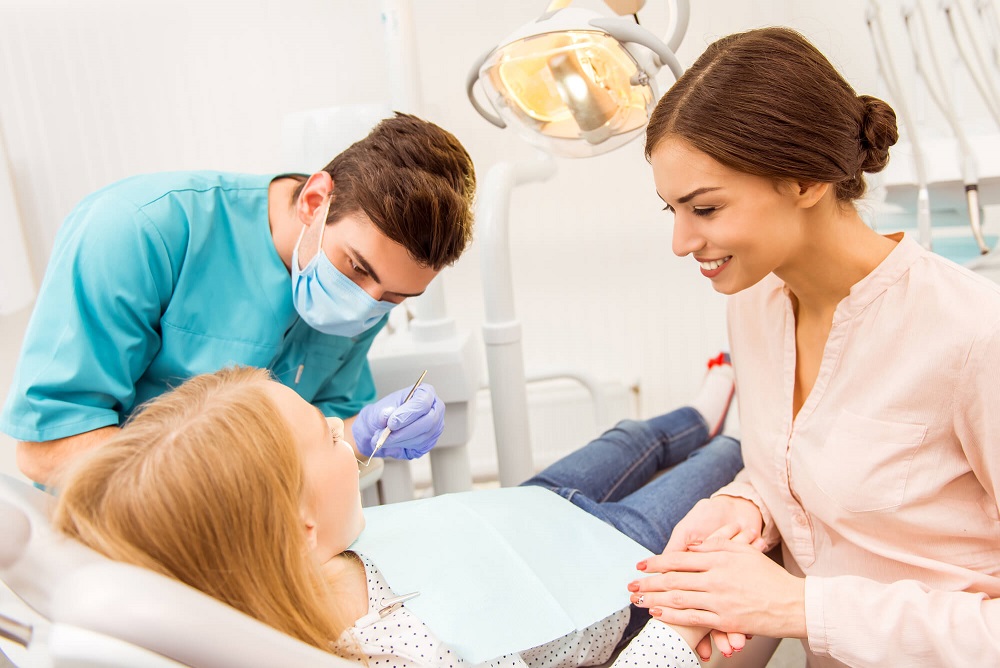Do you feel like your bite is off? Are you having difficulty chewing or biting down? Dental experts such as Jonathan Alexander-Abt in London, England, say you may need corrective jaw surgery. This article will discuss the signs that you may need surgery to correct your jaw alignment. We will also discuss the risks and benefits of this type of surgery. If you are considering corrective jaw surgery, make sure to read this!
Difficulty Chewing Food
Difficulty chewing food is not always a sign that you need corrective jaw surgery, but it can be a symptom of an underlying problem. If you have difficulty chewing food, you must see your dentist or orthodontist find the cause. In some cases, the problem may be due to a misalignment of the teeth. In other cases, the reason may be more serious, such as a tumor or an infection.
Jonathan Alexander-Abt says if your dentist or orthodontist suspects that you may need corrective jaw surgery, they will refer you to a surgeon specializing in this type of procedure. During the consultation, the surgeon will evaluate your mouth and jaws to determine the best course of treatment. In many cases, corrective jaw surgery can help improve your ability to chew food and prevent future problems.
Problems Swallowing Food Or Liquids
Most people don’t give much thought to how they swallow. It’s an automatic process that happens without any conscious effort. But for some people, swallowing can be a real challenge. If you have trouble swallowing food or liquids, it could be a sign that you need corrective jaw surgery.
Several different conditions can contribute to difficulty swallowing. One of the most common is called dysphagia. This is when the muscles and nerves that control swallowing don’t work correctly. Dysphagia can be caused by many different things, including stroke, head injury, and Parkinson’s disease.
Another condition that can cause difficulty swallowing is called GERD, or gastroesophageal reflux disease. This occurs when stomach acid backs up into the esophagus. The acid can irritate the esophagus lining and make it difficult to swallow. GERD can be treated with medication, but in some cases, surgery may be necessary in some cases.
If you’re having difficulty swallowing, it’s essential to see a doctor so they can determine the cause of the problem. In some cases, corrective jaw surgery may be the best course of treatment. Surgery can help to realign the jaws and improve the function of the muscles and nerves that control swallowing.
Frequent Headaches, Jaw Pain, Or Neck Pain
Jonathan Alexander-Abt says if you’re experiencing frequent headaches, jaw pain, or neck pain, it could be a sign that your jaws are misaligned. When the jaws are not in alignment, it can pressure the muscles and nerves in the head and neck. This can lead to tension headaches, TMJ (temporomandibular joint) disorder, and neck pain. If you’re experiencing any of these symptoms, it’s essential to see your dentist or orthodontist so they can check for signs of jaw misalignment.
In some cases, corrective jaw surgery may be necessary to realign the jaws and relieve the pressure on the muscles and nerves. Surgery can also help improve your bite, so you’re not putting unnecessary stress on the teeth and jaws.
Your Teeth Don’t Meet Properly When You Close Your Mouth
Do you notice that your teeth don’t meet properly when you close your mouth? This is called an open bite. An open bite can be caused by many things, including thumb sucking, tongue thrusting, and misaligned teeth. If you have an open bite, it’s essential to see your dentist or orthodontist so they can determine the cause of the problem.
In some cases, corrective jaw surgery may be necessary to realign the jaws and close the open bite. Surgery is usually only recommended if other treatments, such as braces, have failed to treat the open bite.
You Snore Loudly Or Experience Breathing Problems At Night
Sleep apnea is a serious condition when the airway becomes blocked during sleep. This can lead to loud snoring and difficulty breathing. If left untreated, sleep apnea can cause serious health problems, including high blood pressure, heart disease, and stroke.
Jonathan Alexander-Abt says if you think you might have sleep apnea, you must see your doctor so they can perform a sleep study. Corrective jaw surgery may sometimes be necessary to treat the condition. Surgery can help to widen the airway and reduce the risk of sleep apnea.
Your Face Appears Asymmetrical Or Your Profile Has Changed Significantly
If you notice that your face appears asymmetrical or your profile has changed significantly, it could be a sign of jaw misalignment. Jaw misalignment can occur for many reasons, including genetics, trauma, and teeth grinding. If you notice any changes in your facial appearance, it’s essential to see your dentist or orthodontist so they can check for signs of jaw misalignment.
In some cases, corrective jaw surgery may be necessary to realign the jaws and improve the symmetry of the face. Surgery can also help to improve your bite and make it easier to chew and swallow.
Final Thoughts
If you’re experiencing any of the symptoms listed above, you must see your dentist or orthodontist for an evaluation. Corrective jaw surgery may sometimes be necessary to treat the problem. Surgery can help to realign the jaws and improve the function of the muscles and nerves that control swallowing. It can also help to close an open bite and enhance the symmetry of the face. If you think you might need corrective jaw surgery, talk to your doctor about all of your treatment options.








Add Comment